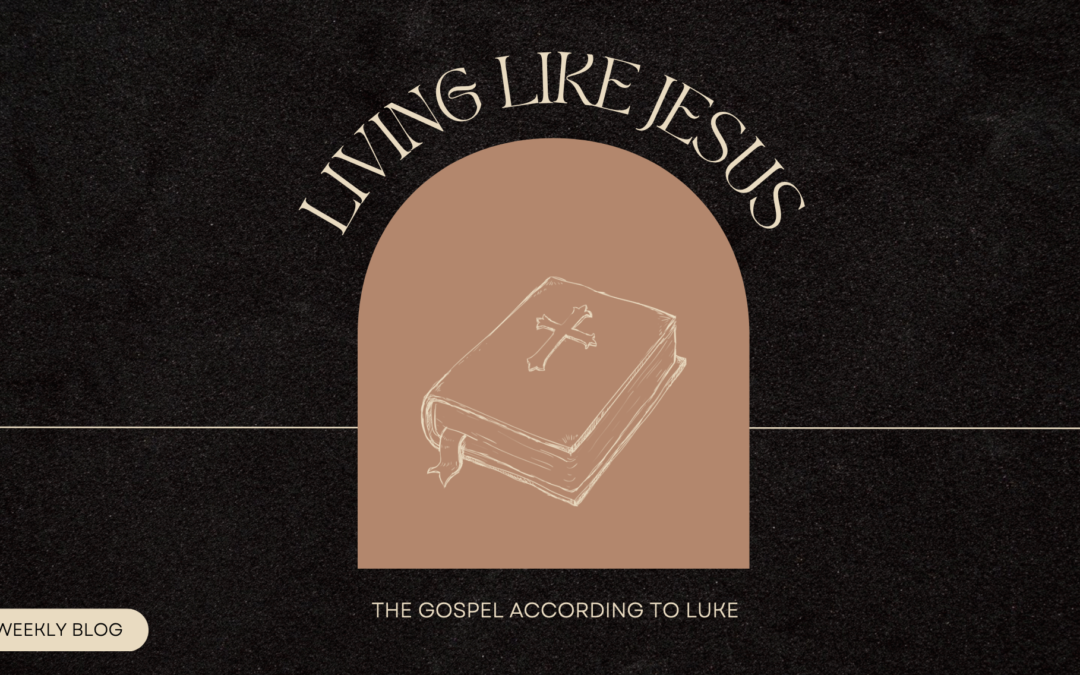LIVING LIKE JESUS: The Gospel of Luke—Week 7
Luke 15:11-32
We are in our third week examining the next of Jesus’ spiritual practices: humility. As we know from Philippians 2:1-11, Jesus is the very epitome of humility. This week we will be looking at a parable with which many of us are familiar: The Prodigal Son. While many of us associate this parable with salvation and the generous grace of our Heavenly Father, this parable also pointedly addresses both humility and the issue of religious self-righteousness.
In this parable we have two examples of humility. The first example is the prodigal son. Of course, he does not start out as an example of humility. In fact, his actions in the beginning of the parable are just the opposite. He is so self-absorbed and entitled that he has no problem with demanding that his father break with social and cultural tradition and provide him with his inheritance immediately. Yet, after squandering his inheritance and being abandoned by his companions to die of starvation, Scripture tells us he “came to himself.” While this idiomatic phrase may not be one with which we are familiar, it would have been very familiar to Luke’s audience. According to Catherine J. Wright this phrase was used to “describe the process of personal transformation that takes place when one confronts one’s failures and gradually comes to an awareness of one’s own identity.” As we discussed last week, true humility is found in finding our worth in God’s love for us rather than our wealth, our vocation, or our reputation. In this story we see this young man transformed from the epitome of entitled, selfish pride to the perfect example of the humility that leads to salvation.
The second example of humility is found in the father. This man cares little for his station and the rigorous standards of his culture. He publicly shames himself by running to greet his son, for it was shameful for an older man to expose his legs and run. He further shames himself by embracing the son who treated him so disrespectfully. Even after his older son publicly humiliates him and refuses to join in the family celebration, the father does not hesitate to once again shame himself to plead with this son in the midst of his tantrum. The father shows no care for how society might view him. All that matters to him is seeing his family restored.
The final, and most tragic, character in this parable is the elder brother. This brother, who represents the religious elitists who questioned Jesus’ associating with sinners, selfishly refuses to participate in his brother’s celebration. Like so many of us caught up in prideful self-justification, he has an over-inflated, if not perverted, sense of fairness. He cares not at all that his brother has returned and been restored. Though it is not stated in the parable, you can even imagine the older brother would have been rather pleased if the prodigal had died of starvation in a foreign land. It’s what he deserved, after all. Even worse, the older brother, who touts his loyal service to his father, cares little for his father’s feelings in the matter. His father’s pleas and reassurances of both his love and the future rewards that await this brother cannot dissuade him from his self-righteous tantrum. He would rather sulk in isolation than participate in the joy of the father.
The sad truth is that loyal service to God, generous giving, and even faithful ministry can live side by side with a heart filled with pride. We must remain ever vigilant to guard our hearts against the religious self-justification that so easily besets us.
Questions:
- With which of the three men in this parable do you most identify? Why?
- Consider the example of the prodigal son. Is there an area where you need to “come to yourself”?
- Consider the example of the father. How did God humiliate himself for your restoration? What are some of the ways you can emulate the father in this story in seeking the restoration of others?
- Consider the example of the elder brother. Do you ever think God is being unfair? Why? Are there any areas of your life where your service may have fostered a sense of entitlement in you?






